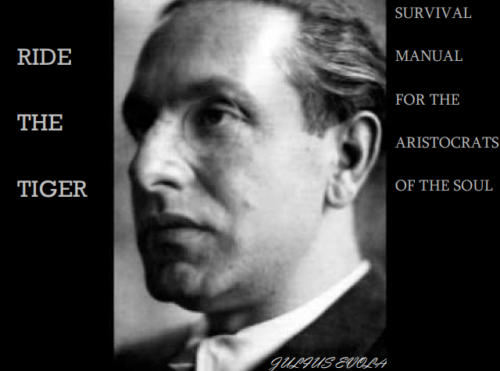
It could be argued that the 19th century was the century of physics, and the 20th century was the century of chemistry. Men such as Maxwell, Watt, Faraday, Tesla, Edison, Rutherford, Hoffmann, Einstein and Shulgin transformed our everyday lives. But now that we can blow up the entire planet at the press of a button, physics and chemistry seem to have hit their limits. This essay argues that psychology will be the science that transforms the 21st century, but there are numerous political obstacles in the path.
As once was true for physics and chemistry, the current popular level of understanding of psychological science is primitive. In the same way that we laugh about previous generations believing that the Moon was made of cheese, so too will future generations laugh at us for believing ridiculous things like smoking cannabis causes schizophrenia. Descriptions of the way we treat desperately mentally ill people today, such as subjecting them to involuntary electroshock treatment, will evoke horror in the future.
Nowadays, thanks to mass education, people can get their heads around aeroplanes, photography and nuclear energy and no longer consider them sorcery. There are a number of obstacles, however, that must still be overcome before the science of psychology can have its full impact upon the world. The main one at the moment is that people tell lies because of politics, and these lies obscure the truth about humanity’s true nature.
For example, the left tells lies intended to create a perception of, and belief in, the natural equality of all people. Because their political dogma is based around the need for horizontalisation, they are loathe to concede that any two people or groups of people are different in any way that might imply that one was better than another.
Although there are no two things in Nature that are precisely equal, the fervour with which it is asserted that all human groups are precisely equal in intellectual capacity equals that of any religion. At its most ridiculous, this obsession with equality will concede that the human form has been shaped by evolution and that the differences in human phenotypes are a function of evolution, but that evolution stops at the neck.
Many people have discovered that genetic differences between groups, especially when it comes to intelligence or temperament, cannot simply be discussed openly without some leftist shrieking all manner of accusations at the participants. This has a retarding effect on the advancement of science because people become reluctant to discuss psychology honestly for fear of having “Racist!” screamed in their face.
The right, for its part, blames the poor and blacks for their state of poverty. If only they would stop doing drugs and read books, the right contends, prosperity would soon follow. They have no time for the arguments that the poor are doing drugs to medicate trauma-based mental illnesses that no other medicine can treat, or that they can’t concentrate to read books on account of being full of adrenaline all the time from the verbal and physical violence in their environment.
Not only does the right tend to blame people for the damage that has been done to them from the outside, but they give credit to people for success that is better attributable to the environment in which that person was raised and the support networks they had. This is bad because it makes it impossible to discuss the nature of society accurately and with honesty, and therefore impossible to design social policy that reduces human suffering.
Authoritarians tell a story about human nature that exaggerates our similarity with chimpanzees. This narrative emphasises the violent struggle of daily chimpanzee life and how qualities such as viciousness, paranoia, brutality and aggression serve to keep one’s enemies at bay. It represents an extreme form of verticalisation in which no-one can turn their back on anyone else for a second.
This ideology can be used to justify a wide range of cruelties, because authoritarianism is naturally terrified of chaos, and so authoritarian societies clamp down on free expression and recreational exploration of sex, drugs and music. All of these things, plus others, are regularly banned in authoritarian societies, which emphasise the usefulness of hierarchy for keeping things in their place.
The problem with this attitude is that human beings have a need for recreational activities, because boredom is literally a mental disease, and one that leads to physical diseases. People have to be allowed to enjoy themselves, because human nature needs to find a balance to the masculine working and fighting aspects of life.
Moreover, authoritarian thinking cannot handle drug use because drug use leads to free thought, and novel ways of thinking are considered security threats by control freaks, who clamp down on them. This mentality is responsible for cannabis being illegal. Pharmaceutical advances in the treatment of psychological conditions seldom happen when authoritarians are in charge.
Libertarians, on the other hand, tell a story about human nature that exaggerates our similarity with bonobos. This narrative emphasises lovemaking and peace, and maintains that all people are capable of being good if only given a chance. Although this is based in a perfectly lovely sentiment, it’s no less dangerous.
For one thing, the belief that all people are inherently good makes it harder to defend ourselves from those who are not good. Libertarian naivety about the dark rivers that run through the human heart mean that they make political decisions that expose them to that darkness. Often the mistake is not realised until it cannot be easily rectified (such as the European experience with Muslim and African immigration).
Another point is that libertarian logic denies the inherent human need for (at least a modicum of) order. It might be true that excessive legal and cultural strictures cause suffering, and that liberation from such is exhilarating, but no-one can simply dwell in a state of chaos without eventually feeling impelled to impose some order upon their surroundings.
Psychology has the potential to radically improve the standard of living of all people, especially this century as advances in brain-scanning technology herald great advances in neurochemical understanding. The biggest challenge that psychology faces, however, is that many people are motivated to deny psychological truths for the sake of political advantage. This will delay the impact of advances in psychological science on human society.
*
If you enjoyed reading this essay, you can get a compilation of the Best VJMP Essays and Articles of 2017 from Amazon for Kindle or Amazon for CreateSpace (for international readers), or TradeMe (for Kiwis).


